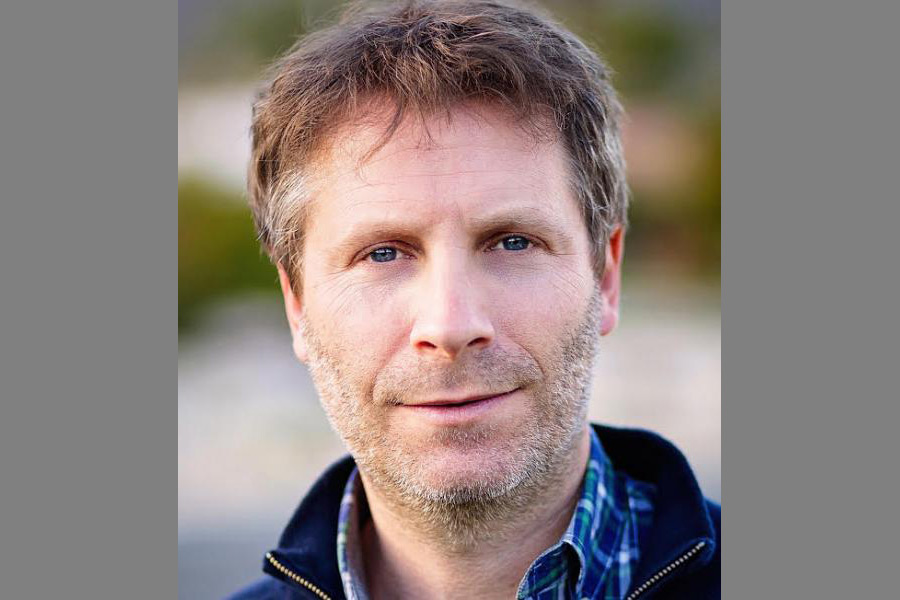The first-floor meeting room at the Psychoanalytic Center of Philadelphia in Fairmount Park swelled with people last weekend who had gathered for “Coming Out As An Intergenerational Family Affair: Perspectives from a Father, Mother and Son,” presented by gay historian Dr. Nathaniel Frank and his parents.
Frank — along with his father, psychoanalyst by Dr. John L. Frank, and social-worker mother Elaine Frank — spoke candidly about his coming-out to his parents and the importance of understanding and acceptance from parents for their LGBT children.
Frank’s new book, “Awakening: How Gays and Lesbians Brought Marriage Equality to America,” is out this month from Harvard University Press. PGN had the opportunity to speak with Frank about the April 22 program, his new work and the importance of marriage equality in today’s political landscape.
PGN: How have these two schools of thought (“equals rights for gays and lesbians” and “gay liberation,” cited in “Awakening”) evolved from 1960 to today?
NF: I think that one of the things that surprised me most in my research was how LGBT people themselves evolved across these decades of the history that I was exploring. So, first of all, the focus on what I’m calling their gay liberation was part of a larger context of the counterculture. When it comes to the specifics of the way the LGBT movement evolved, there were a lot of people who I cover in my book who started out their work and their thoughts viewing marriage and military service and other aspects of what they felt were establishment culture with a wary eye, as did so many others of the counterculture. As acceptance grew — and part of that acceptance was in some cases prioritizing simple equal treatment and access to the same cultural spaces, like the military, the church and the family as everyone else — it makes [a] certain amount of sense that people would welcome that new sense of access and belonging. That can have the effect also of blunting this more radical fervor that manifested itself in suspicion of mainstream culture.
PGN: What do you think has to be done in the country now in order to ensure the progress that led to marriage equality does not dissolve under the current Trump administration?
NF: Well, you always need to maintain vigilance to protect the advances that you’ve worked so hard for when it comes to any kind of social-change activism. That idea of vigilance aligns with the idea of the title of my book, “Awakening,” which is having your eyes open and your consciousness open and focusing on visibility — your own visibility and awareness of what’s going on around you and of the risks to any other vulnerable populations. So, I think the Trump election, and the kind of social and cultural counterrevolution that that represents, is a reminder to us all how fragile progressive gains can be. And, because I think visibility was such an important part of making these gains happen, continuing that visibility will be an important part of protecting them. Hopefully, the lessons contained in the book are among those that people can look to. Visibility is certainly one of them. Finding ways to build coalitions and unify people across different lines of geography, ideology, race, class and so forth is another very important lesson and something that was crucial at times in making the LGBT gains, including marriage equality.
PGN: At your Philadelphia presentation, you spoke about the affirmation of parents of their LGBT children. Can you talk more about that?
NF: It is incredibly important for LGBT young people to know that their parents love and accept them. We have empirical research showing that rejecting behaviors by parents actually increase the risks for LGBT young people of physical and mental-health problems: anxiety, depression, suicidality, low self-esteem, HIV and AIDS. And by contrast, parents can play a protective role by demonstrating accepting behaviors. No matter what you may believe about gender or sexuality differences, assuming that you care about your children’s well-being, it’s critical that those parents understand that they hold a lot of power [over] the well-being of their children when it comes to how they react to their children’s difference. Parents across the political spectrum who have LGBT kids may not know what it looks like to display accepting behavior and that’s part of what my parents and I were trying to explore and share in the panel.
Dr. Nathaniel Frank is also the author of “Unfriendly Fire: How the Gay Ban Undermines the Military and Weakens America” and is the project director of the What We Know Project at Columbia Law School.
